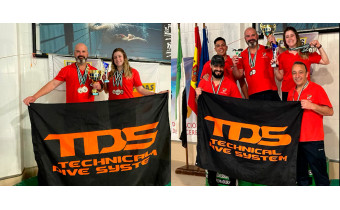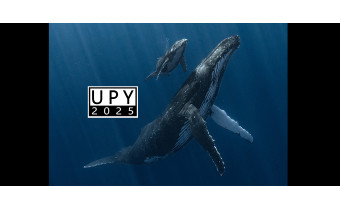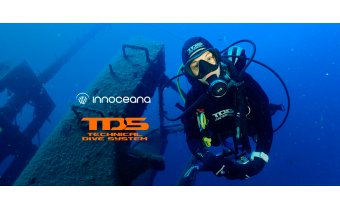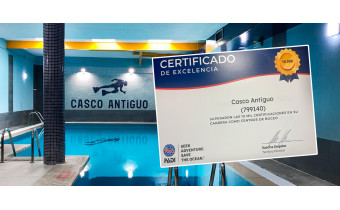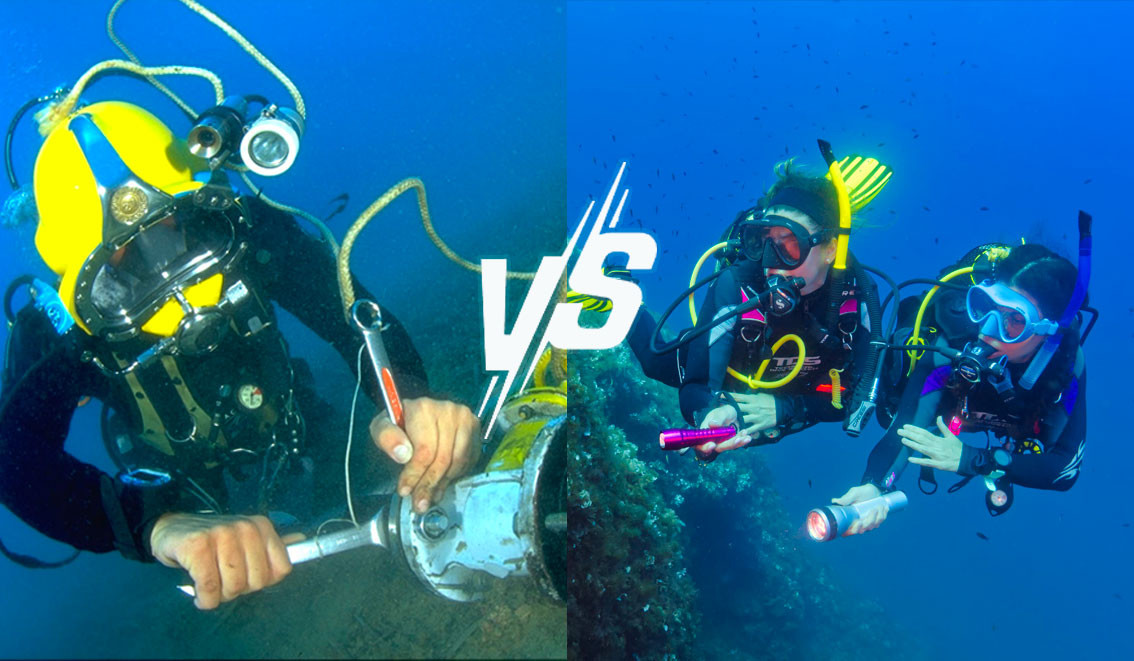
Discover the differences between recreational diving and commercial diving
Recreational diving and commercial diving are two distinct aspects of the diving world, each with its own characteristics and approaches. Whether you are looking to explore the underwater world as an enthusiast or pursue a professional career in diving, it is essential to understand the differences between both modalities and choose the option that best suits your interests and goals.
1. Purpose of the activity:
Recreational diving focuses on exploration, enjoying the underwater world, andpracticing the sport safely. Recreational divers are certified to dive to a certain depth limit and must follow safety guidelines established by certification agencies.
However, commercial diving has a more professional focus and is done for work purposes. Commercial divers work in industries such as construction, underwater structure repair, equipment inspection, or search and rescue. Their main objective is to complete specific tasks in underwater environments and, therefore, must have additional skills and certifications while prioritizing safety.
2. Training and certifications:
It's important to note that to practice recreational diving, it is necessary to obtain certification from a recognized organization, such as PADI. This certification involves undergoing a training program that includes theoretical classes, confined water training sessions, and a series of open water dives supervised by a certified instructor.
On the other hand, commercial divers must undergo more extensive and specialized training courses. This type of certification is obtained through commercial/professional diving schools and usually requires more experience and technical skills, such as the use of specialized equipment and training in underwater work safety.
3. Equipment and technique:
In recreational diving, standard diving equipment such as masks, fins, regulators, and buoyancy compensator devices (BCDs) are used.
However, commercial divers use specific equipment and tools for their work, such as diving helmets with communication and umbilical breathing, underwater welding or cutting equipment, hydraulic lifts, among others. Additionally, they must have advanced knowledge in underwater work techniques, such as handling currents, safety in hazardous work environments, and rescue techniques.
4. Experience:
Age and physical condition are more flexible in recreational diving, as recreational divers can choose their dives, avoiding challenging conditions and extreme depths. However, they must always follow safety protocols to enjoy a safe experience.
On the other hand, commercial diving requires more experience and physical fitness. Commercial divers must be prepared to work in more extreme conditions, including prolonged dives, greater depths, low visibility conditions, sustained physical effort, and long decompressions in diving bells. Additionally, a complete medical examination is required, and strict adherence to industry-established safety standards is essential.
 Cookie preferences
Cookie preferences


